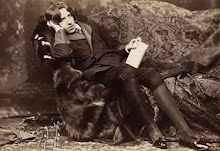
One of Plato’ dialogues, tradition added subtitle peri tou kalou - About beautiful. It is the dialogue that Plato named after the name of young companion Phaidros. But during the tradition, this dialogue has been further named: peri psyches - About soul; peri to erotic - About love. About all those listed, about beauty, about love and the soul - and not just passing - is here. But also, and very detailed about techne - about art, but also very closely, the speech - the speech and language, but also, and even chip in essential aletheia about - the truth, but also really pressed about mania - the crazy, loss of self, and finally, in the face constantly, and the idea of being, immortal soul.
The truth, The Good, The beauty- have been always the most important approaches to the writers and to philosophers.
To talk about in our Wednesday chat meeting, we are in mind the Myth of winged soul (part.246a - 249b) and the Myth of Theuth (274b - 275b)
The truth, The Good, The beauty- have been always the most important approaches to the writers and to philosophers.
To talk about in our Wednesday chat meeting, we are in mind the Myth of winged soul (part.246a - 249b) and the Myth of Theuth (274b - 275b)
Click here for the excerpt in Greek. Find the first myth with Edit, Find on this page, "Όσο λοιπόν για την αθανασία της". Ask the librarian where to find the myth of Theuth in Greek.
Click on the handmade and digital image to see the myth though the Greek Bookclub's eyes. Mouslum and Elton worked for the posters. Take a look at our discussion notes!
Πατήστε επάνω στις εικόνες για να δείτε τις αφίσες του Μουσλούμ και του Έλτον. Ρίξτε μια ματιά στις σημειώσεις που κρατήσαμε από τη συζήτηση στην ελληνική ομάδα.


Below, there is a debate map, you are invited to compete with your arguements related to the soul (mortal or immortal).

























No comments:
Post a Comment